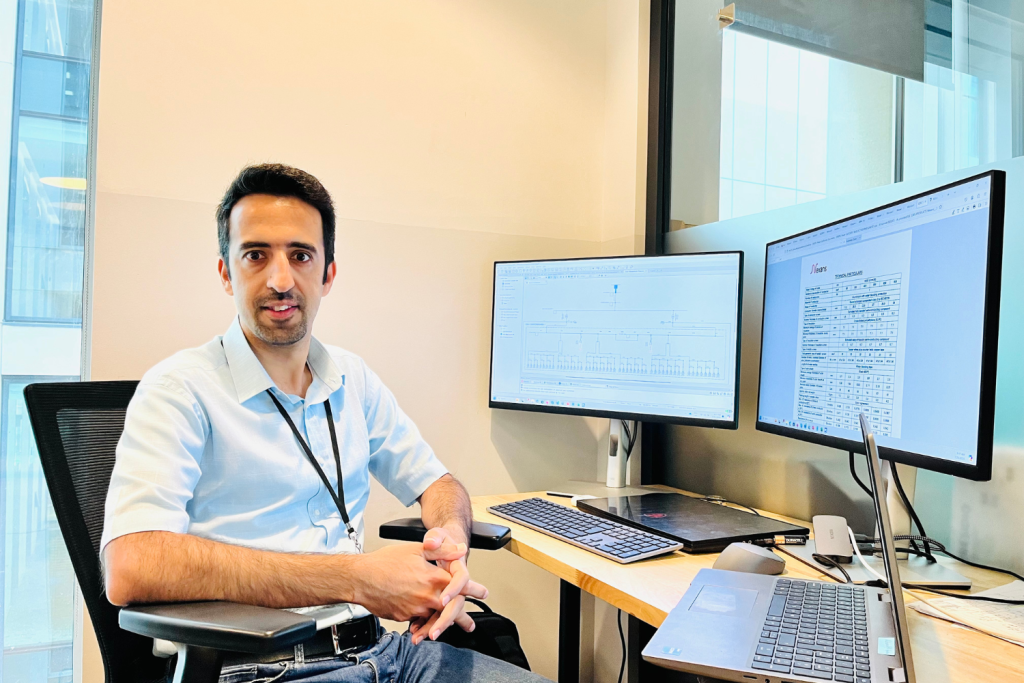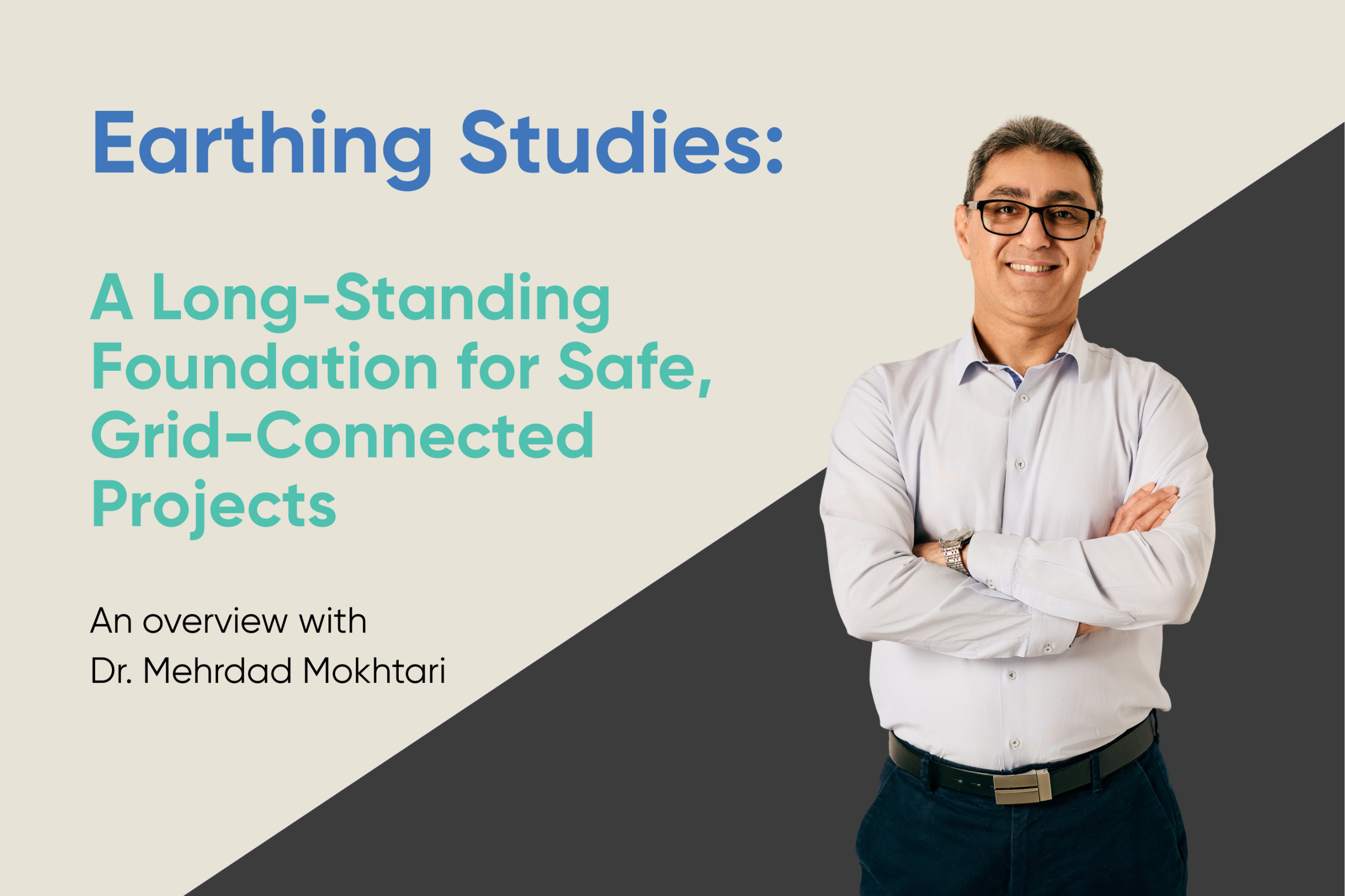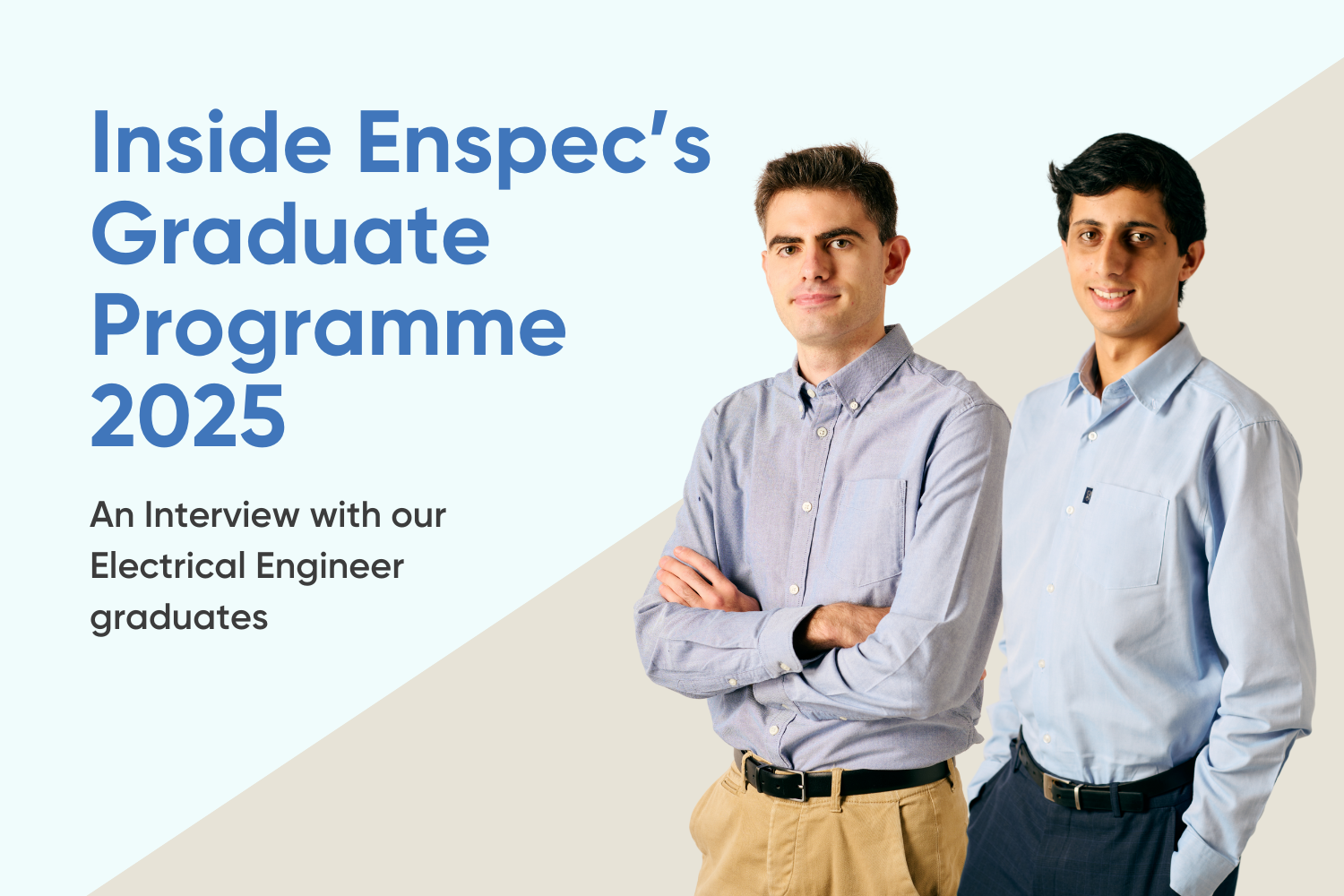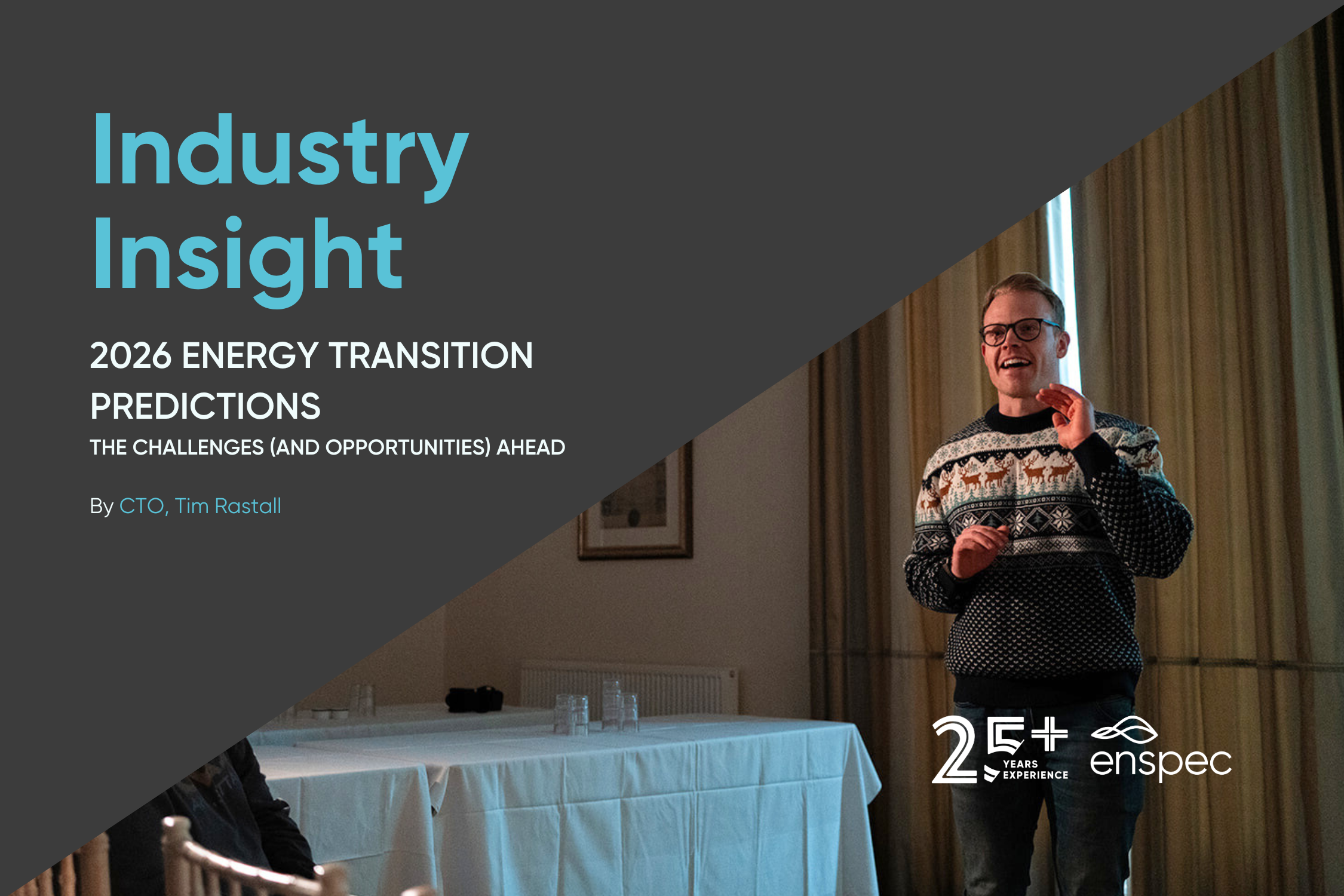We sit down with Enspec CEO Mara Rastall and Manchester Metropolitan University KTP Associate MohamadAli Amini, to explore their ongoing groundbreaking work on the future of hydrogen as an energy carrier.
Hi MohamadAli, could you explain your position within this exciting and innovative Knowledge Transfer Partnership (KTP)?
I am a KTP associate for a partnership between Manchester Metropolitan University and Enspec. I am mainly employed by the university and seconded to the company for study and research relating specifically to hydrogen technology.
Enspec has a consultancy that focuses on grid studies, power system studies and power networks, focusing on grid integration of any renewable based power plant, like solar, wind and Battery Energy Storage System (BESS).
With hydrogen set to be one of the most important energy carriers in the future we are focusing on what power quality restrictions there are to understand with hydrogen-based plants integration into the grid.
How did this KTP come to be Mara?
I was introduced through a business associate to Amer Gaffar, Director of the Manchester Fuel Cell Innovation Centre, and he invited Enspec to tour MMU’s fuel cell centre. It’s an area that sits within my growth remit, particularly when it comes to understanding where we will be in the future and examining the current constraints when it comes to grid connection and where big industry and new technologies are tripping up.
From what point of view are you coming at this study from MohamadAli?
We are studying from the grid point of view, exploring power quality challenges, voltage fluctuations or frequency deviations and other power quality indices that we have. I am employed here to focus on integration challenges caused by a hydrogen-based plant to the grid.
A hydrogen plant can be a fuel cell that generates electricity and consumes hydrogen as a source. Or it can be an electrolyser that consumes electricity and produces hydrogen.
We are exploring how this affects the grid at the point of connection. This is the high level of the framework of my study here at Enspec.
What will this two-and-half-years project further entail Mara?
We have a roadmap which includes market Insights: delving deep into market dynamics, growth forecasts, and anticipating emerging power quality challenges.
MohamadAli will lead testing with MMU’s electrolyser, seamlessly transitioning into simulation exercises alongside our Power Systems team to predict hydrogen power quality issues.
There will be innovative solutions: armed with insights, we’ll craft tailored solutions and collaborate with industry leaders to shape the future of renewable energy.
And finally community engagement: beyond innovation, we’re committed to fostering collaboration within our community, sharing knowledge, and inspiring others to join the sustainable energy revolution.
Anything to add at this point MohamadAli?
Yes, grid integration studies for solar and wind farms for example have all been completed and are of course clear, but this isn’t the case for hydrogen.
Over the next two-and-half-years I will conduct software-based modelling and depending on the results we may need to run some lab-based testing so we can go into more detail about the model needed for the hydrogen plant and the model needed for the grid.
We are simulating using different power system studies softwares to explore and extract different challenges that may arise.
MohamadAli, from a global sustainable energy point of view, how important can hydrogen become?
Very! Achieving sustainable energy that can be controlled is very important. The main shortcomings of solar and wind technologies is that we cannot control the output power, the light of the sun or the wind flow. Hydrogen is a key that can solve this bottleneck, this shortcoming.
We can use the energy that’s being produced from the wind turbine or a PV panel and use that energy to produce and store hydrogen in hydrogen tanks or in other forms of storage.
And then, when we need that electricity, we can convert hydrogen back to electricity through the fuel cell. So, from a high level point of view, we can control the flow of electricity that is being generated.
And what’s’ your take Mara?
When you look at hydrogen as a technology and where the industry is going, there’s a lot of investment going into hydrogen.
As new technology, it means that we’re going to have a lot of brand new players in the market.
Hydrogen technology, as it stands, is not efficient enough for it to be a sole energy source. When you take hydrogen and convert it back into electricity, it still takes more electricity to make that amount of hydrogen, so you lose out producing it.
And this is where the technology itself needs to be perfected in order for it to be a more viable energy source globally.
With that said, you cannot deny that there is an absurd amount of money moving towards the technology, and that people are taking it seriously, and that more and more investment will go into effective technology because it has such capability.
Can you comment further Mohammad Ali on the ever-present issues relating to the balancing of energy supply and energy demand?
With hydrogen based technology we can control the output power, and this is the most important parameter in power system operation.
We have a very important rule in power system operation, which is the balance between the generation and the demand. It’s a balance that should always be realised.
My incentive is to get familiar with the edge of science technology that is hydrogen. It has many other applications such as use in hydrogen based vehicles, hydrogen based industrial plants and it can be blended with natural gas and transformed through the available pipelines.
Hydrogen will be one of our future forms of energy all over the world. And if we are going to have hydrogen generating units, the challenges associated with this, at the point of connection, is what needs to be explored first. Addressing these points is what will allow us to predict potential milestones, meaning projects can be completed with less hiccups and more economically.
To finish MohamadAli, how’s life been at Enspec so far?
Enspec is a company that is growing at a rapid rate and I am now here full time in the company’s Manchester office.
They are very supportive and like technical challenges and solving them with teamwork.
Knowledge Transfer Partnerships are very important.
In my case this specific partnership enables Enspec to conduct studies, outside of what they might normally research, and to blend findings with the studies and research that they have in place.
What does and will this KTP mean for Enspec, Mara?
It’s exciting and it is about proposing solutions. It also puts us in a really good position to not only be a consultant around hydrogen and the grid, but also to provide the appropriate solutions and be one-step ahead.
We can share insights with investors and others in the industry, giving them a heads up on what to expect.
Thanks to this KTP we believe we have found the right person to lead on this in MohamadAli, as not many people have the capabilities and blend of industry knowledge that he has.



